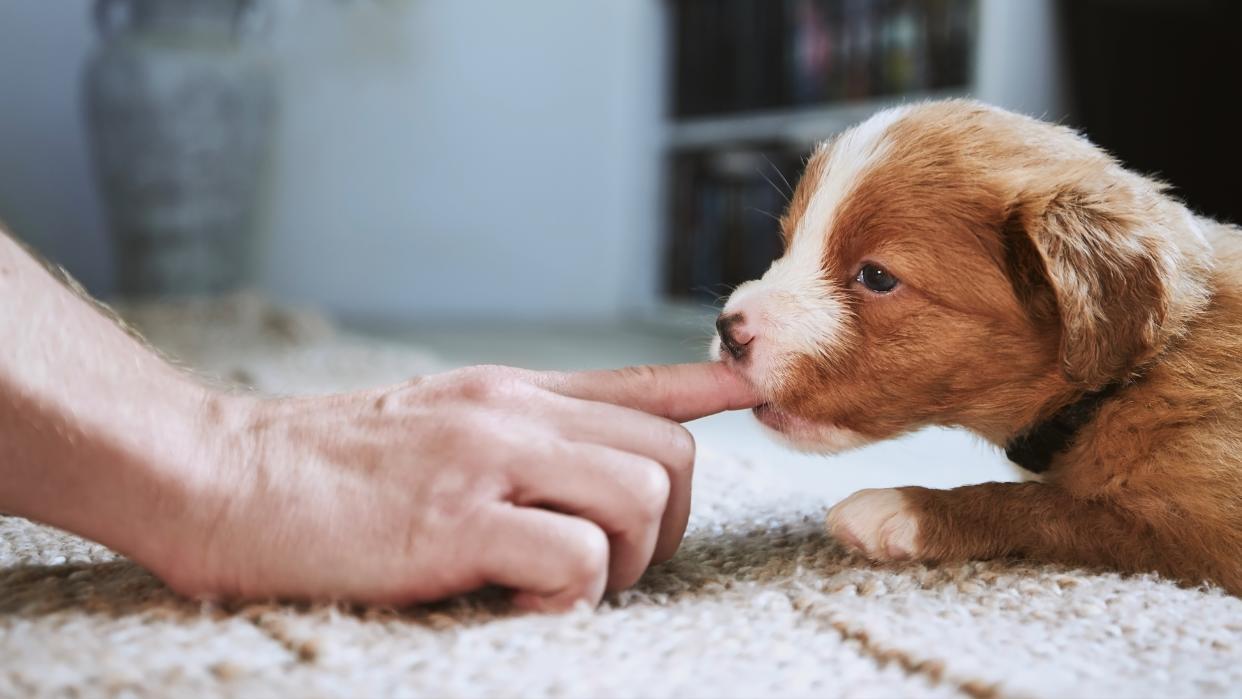Is your puppy biting you? Here’s what to do, according to one trainer

Dogs explore the world through their nose and mouth, and it’s totally normal for puppies to bite and mouth.
However, we don’t tend to enjoy it when our puppies bite us, and it makes sense to nip any biting in the bud before they get bigger – for the safety of both your pup and the people around them!
We don’t want to be too harsh and punish our puppies for biting us when playing with one of the best dog toys, as they don’t realize they’re doing anything wrong. So, how can we prevent them from biting?
Well, certified dog trainer Melissa Goodman of Mission Pawsitive has offered some advice in a recent Instagram post, and it’s well worth taking on board – whether you currently have a puppy or not.
A post shared by Melissa Goodman | Dog Trainer (@missionpawsitive)
A photo posted by on
If you want to know how to stop a puppy biting, mouthing or nipping, you’re in the right place! In her video, Goodman is playing tug-of-war with a nine-week-old puppy. “This puppy let go of the toy and my leg just happened to be right there,” she says, “I don’t get upset. I just get her back on the appropriate option, and move on.”
If it keeps happening, Goodman recommends ending the game and doing something else – your puppy might be overstimulated. As she says in the caption, a puppy biting you isn’t trying to be mean. They’re simply playing a game, and your leg – or another body part – is right there.
If you have an older dog, and they come off toys during games to put their mouth on you, you might be asking questions like, ‘Why is my dog play biting me?’
Even if your dog is an adult, biting still likely means that they’re overstimulated. So, give your dog some time by themselves to calm down, or try a less intense activity with them.
As Goodman says, “If you get upset at them, or try to punish, most often that just adds frustration.” This can often make the mouthing and biting worse, because they’re confused and don’t know what they should be doing instead.
Even the most well-behaved and well-socialized pup can bite now and again, so it’s not likely to be a major cause for concern. However, biting can occasionally indicate an underlying injury or health condition – dogs can sometimes react in an aggressive way during play if a movement they’re doing makes their discomfort work, simply as a way to communicate that they’re uncomfortable. So, if your pup suddenly begins to bite during play sessions when it’s not something they’ve done before, it’s a good idea to consult your vet.
If you’d like some more advice on biting, you might find this article useful: Vet shares top tips on how to train a puppy not to bite (and it's easier than you might think).

